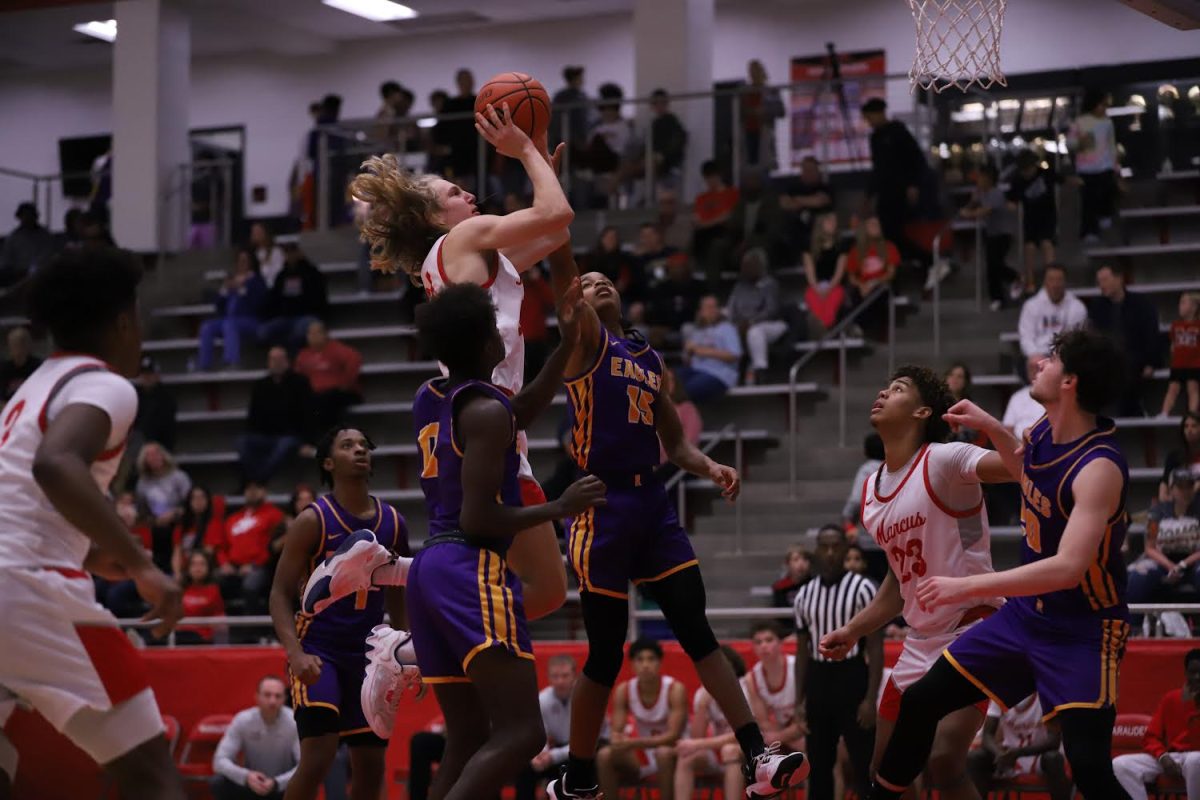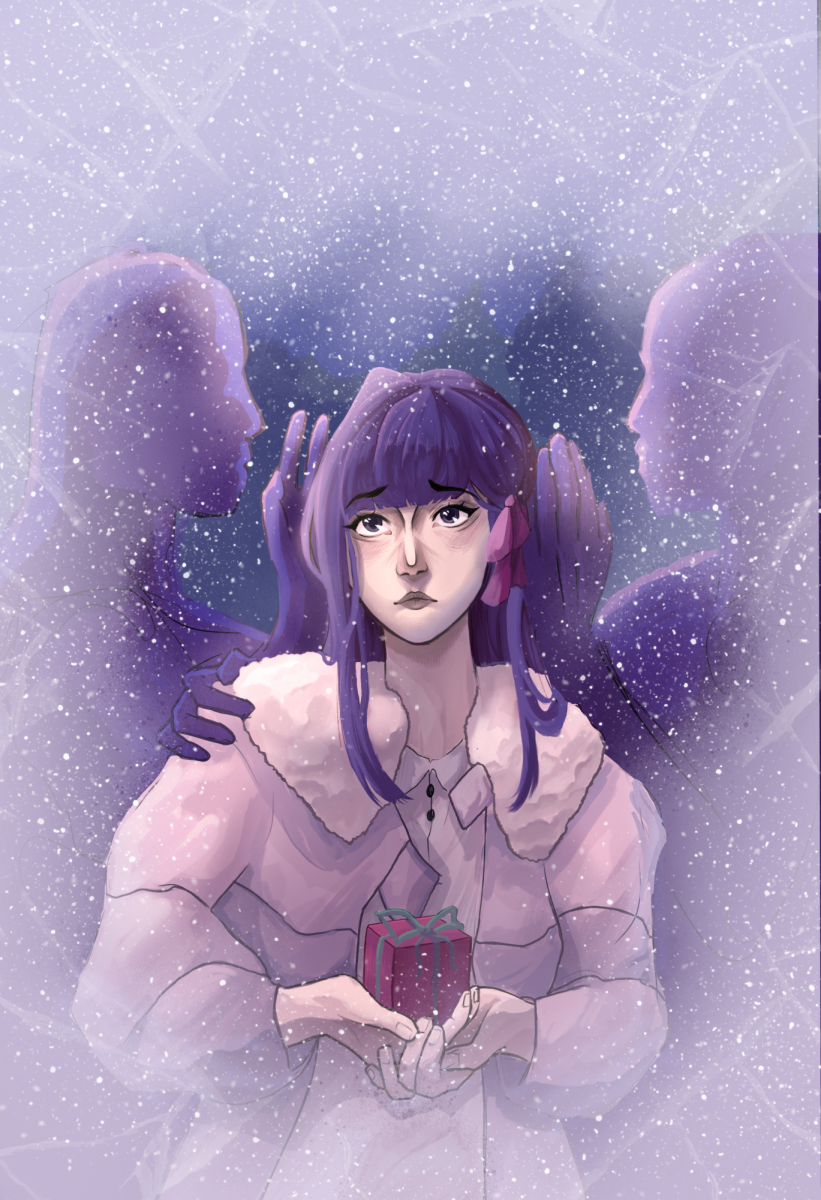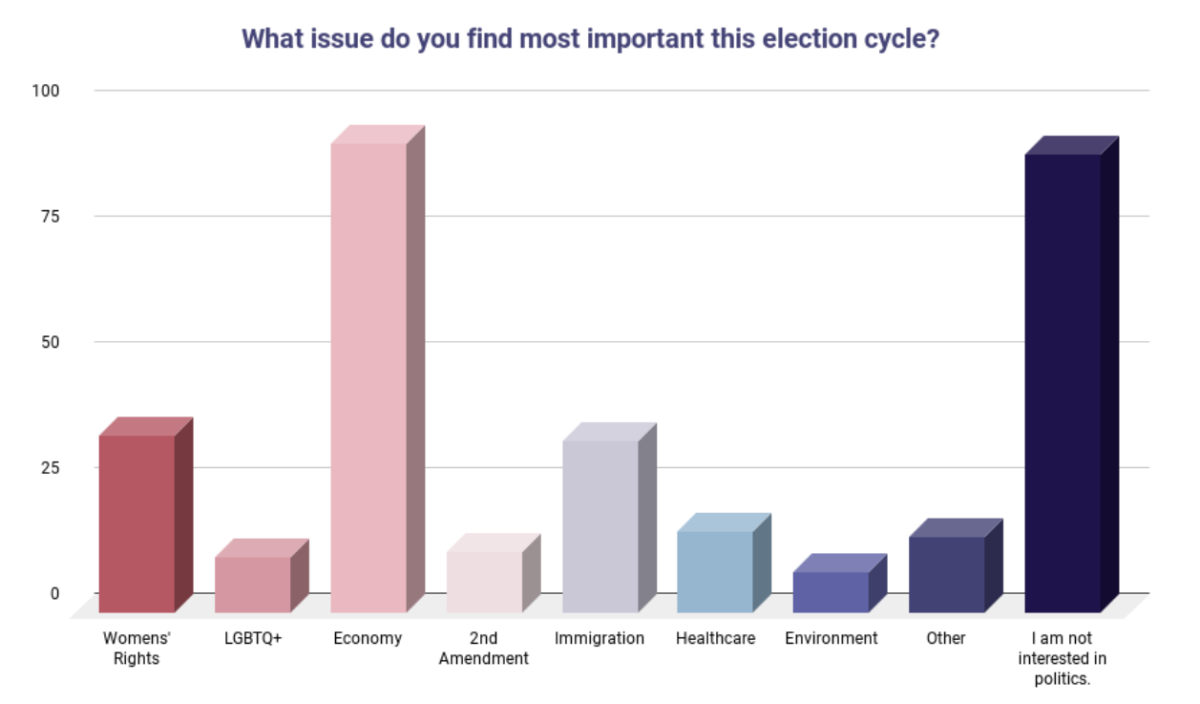Editor’s note: This story, with its accompanying news story and historical timeline, won third place for in-depth news feature package in the 2024 ILPC contest.
Rummaging through a box of jewelry, sophomore Hiba* laces her fingers around a gold chain with a small pendant in the shape of Palestine. Fastening it around her neck, Hiba stares at her reflection in the mirror. Beaming off the blackness of her shirt, the pendant shines with the Arabic words “We have on this Earth what makes life worth living.”
Looking down at the necklace, she is reminded of past stories of her great-great-grandfather and other ancestors told by her father**. Hiba thinks about Palestine often, especially since the Oct. 7 war began.
Hiba’s family is originally from Haifa. This city ceased to exist when Israel was created in 1948. At that time, her ancestors were pushed out to Jordan.
On Hiba’s bedroom door, two sashes hang from the edge. One having green and black stripes with the word “PALESTINE” written in red print. Another with the design at the top of a Palestinian keffiyeh (a checkered black and white print), a drawing of Jerusalem with the words “Jerusalem Our Home” written underneath and a Palestinian flag crocheted at the bottom. At the beginning of the war, she could be seen wearing these sashes around school.
“I’m very patriotic for my country,” Hiba said. “All the time I wish that I was there in Palestine. I wish I was there to help my people.”
***
This is not the first time Palestine has been fought over – After WWI, the British took control of Palestine from the Ottoman Empire.
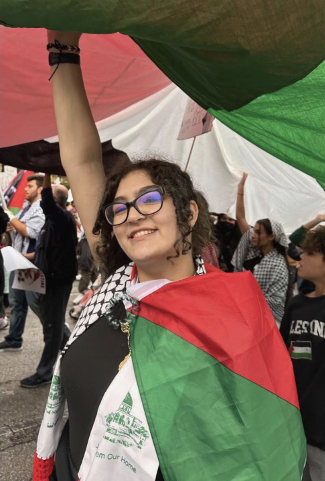
Following almost 20 years of British rule, the Palestinian people revolted against the English in 1936. Hiba’s great-great-grandfather fought against the British.
The family said he fought hard in this battle, and was really successful in combat. Hiba’s grandfather eventually ended up on the wanted list and continued until one day he was hit with an aircraft 500 caliber bullet in the head.
Laying on his hospital deathbed, a British Air Force commander visited him to ensure this warrior was dead. He grabbed him from the throat, squeezing him till he began to choke.
12 years later, their hometown, Haifa, was taken by Israeli settlers, forcing the family out. In a short amount of time, Hibas great-great-grandmother had to leave behind the only city she knew, seeking refuge in Jordan.
For Hiba, the death of her great-great-grandfather and the expulsion of her family from Palestine is her inspiration.
“It’s lovely to know my great great grandfathers were fighters,” Hiba said. “I’m proud of their bravery and how they actively stood up for their country.”
***
In 2018, emotions were high as her dad left to visit the homeland of his ancestors for the first time. Her father traveled alone, leaving Hiba and his family.
“We were planning to go there together, but there was a lot of conflict, so I couldn’t take the kids,” Hiba’s father** said. “The situation was heating up, you know, off and on. So it wasn’t safe to go.”
Safety wasn’t the only force holding him back from visiting his homeland.
“It wasn’t easy for me to go there,” Hiba’s father said. “Because it was really hard for me to see my country, my land, my home taken and occupied by other people. So I resisted going there so many times before because I cannot tolerate that.”
After landing, he went through hours of checkpoints and interrogation before being permitted to enter Jerusalem. The moment the sight of Masjid Al Aqsa (a holy sight for Muslims) entered his view, he couldn’t hold it in. A sight he had only seen in photos was right in front of him.
“I was weeping, I was crying. I was extremely emotional as soon as I walked into Jerusalem,” Hiba’s father said.
The remainder of his trip, he spent around Palestine. Everyday spent there further reminded him of the conflict. Despite being pushed out to Jordan, the family strongly identifies as Palestinian.
“It’s an emotional feeling. To walk in a country that is yours. You know everything is yours, the land is yours, the people are yours,” Hiba’s father said. “You know everything belongs to you although it’s taken.”
Back in Texas, Hiba felt happy her dad was able to go.
“It’s nice to know that my father was able to go there and actually experience Palestine,” Hiba said. “In sha Allah (by the will of God) that will be our next trip.”
***
Scrolling through Instagram Oct. 7th, a flood of posts from Palestine overtook Hibas feed. Turning on the television, the family was not surprised to see the usual sight of bombings and killing of innocent civilians.
“This conflict is not something new, we’re talking about a history of 75 years,” Hiba said.
However unlike other wars, this time the family is hopeful the Palestinians will gain some freedom. Rather than being fearful, the family is hopeful that Palestine will one day be free.
“Generally speaking, death is a part of our DNA. We’re not scared of death. We have family members who are murdered and killed by the occupations. We live with death,” Hiba’s father said.
Along with the brutal videos of Palestinians being killed and their land being taken, the family has noticed a rise in anti-Jewish crimes, and condemns all acts of hatred towards Jewish people.
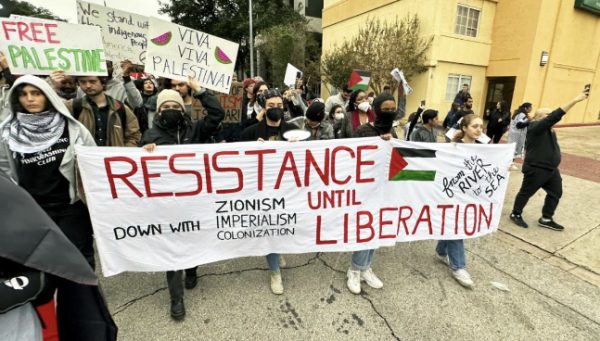
“Also, there’s also been a really big issue that’s going… there’s a spike in hate crimes against Muslims and against Jewish people. That’s where it also kind of wrapped. This is not a religious issue, don’t try to make it a religious issue.”
The family wishes for the peaceful co-existence of Jewish, Christian and Muslim counterparts in the land of Palestine.
“It’s very important that the Muslims have nothing against Judaism. We want to go back to 100 years ago, where Muslims, Christian’s and Jewish coexist together. Under one land, as neighbors, friends and no conflict.”
In the meantime, the family continues to advocate for Palestinian rights. Through the use of social media, and peaceful protest the family hopes more people will stand with Palestine and fight for their freedom.
“You don’t have to be Muslim or Arab to stand with Palestine, you have to be human,” Hiba said.
*Last name withheld upon interviewee request
**Name withheld upon interviewee request





